Natural Home Remedies for Sinus Problems
By Dr Smita Barode +2 more

Get,

to manage your symptom
Get your,


4 Cr+ families
benefitted

OTP sent to 9988776655



You’ve successfully subscribed to receive
doctor-approved tips on
Whatsapp

Get ready to feel your best.

Hi There,
Download the PharmEasy App now!!


Register to Avail the Offer
Send OTPBy continuing, you agree with our Privacy Policy and Terms and Conditions

Hi There,
Sign up on PharmEasy now!!
Trusted by 4 crore+ families

OTP sent to 9988776655



You have unlocked 25% off on medicines




Code: NU25
By Dr Smita Barode +2 more
Table of Contents
You might feel pressure on your face and think that it is just because of a cold or allergies that you’ve got. But, along with that, you might feel heaviness in your forehead and between the eyes. It might not be just because of the cold. It might be due to a condition called sinusitis. Sinusitis is the most common sinus problem. When the spaces in our head (sinuses) that are usually filled with air get filled with fluid, it is called sinusitis. This is also known as rhinosinusitis, where rhino means nose. Swelling of the sinuses almost always implies a swelling in nose tissue as well, hence the name1. Let’s find out more about what can cause this condition and how we can use natural remedies to get relief from it.

Blocking of air-filled spaces (sinuses) of the head with fluid due to swelling in its tissue lining is what causes sinus problems or sinusitis. The swelling can be caused by bacteria, fungi, or viruses1. Specific conditions in which this can occur are:
The key to the treatment of sinusitis is to reduce the triggers. Patients should be urged to quit smoking. In addition, the early empirical use of antibiotics should be avoided. The outcomes depend on the cause, but irrespective of treatment, recurrences are common and lead to poor quality of life.
Dr. M.G. Kartheeka, MBBS, MD(Pediatrics)
You might find it difficult to differentiate a sinus problem from a common cold and allergies1. Here are a few common symptoms of sinusitis:
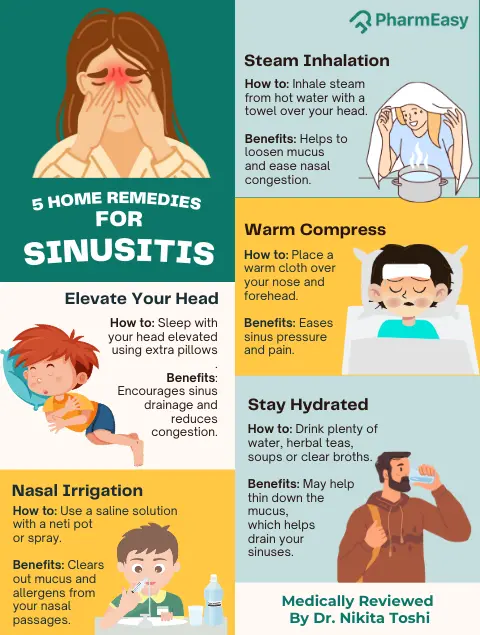
If you’ve had sinusitis, you know how it feels. There is pressure between the eyes and forehead, headache, and a blocked nose1. It can be pretty inconvenient and can cause a lot of discomforts. However, there are a few natural home remedies listed below that you can try to rid yourself of these symptoms.
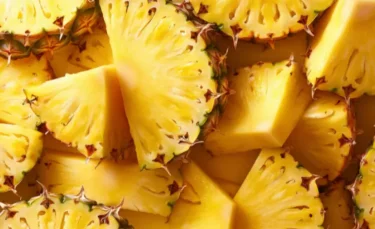
Pineapples have many benefits for sinusitis. The clinical trial findings show that pineapples can help relieve the inflammation of nose mucosa, alleviate breathing difficulty, and lower nasal discomfort. All of these properties are beneficial in managing the symptoms of sinusitis2. Therefore, you can use pineapples as a home remedy just by eating them as a fruit or drinking it as fruit juice.
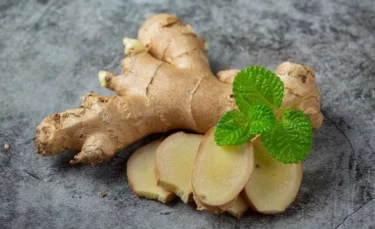
Ginger has the properties of alleviating inflammation and acting as an antioxidant. This might be responsible for its benefits for sinus problems. Ginger, along with green tea, can be highly beneficial for allergies and sinusitis as it suppresses inflammation2. Therefore, you can add ginger to your green tea and drink it to reap its benefits.
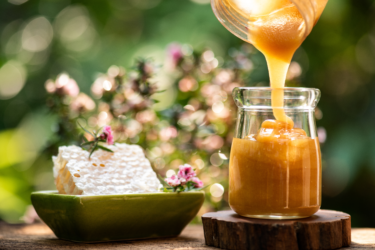
Manuka honey is a different kind of honey that is obtained from the flowers of the species Leptospermum (tea tree). These tea tree flowers are native to Australia and New Zealand. Manuka honey has potential activity against bacteria, especially Pseudomonas aeruginosa and Staphylococcus aureus2. Therefore, it might help manage rhinosinusitis. You can use Manuka honey by mixing it in warm water and drinking it as tea.
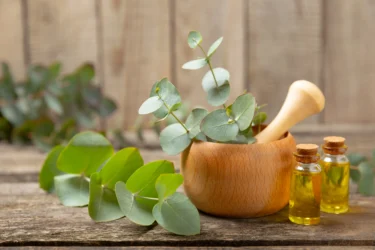
Cineole is a common derivative of eucalyptus oil. It is present in many plant-based essential oils and has various therapeutic effects. It stops inflammation, increases the clearance of the mucous lining of the nose, and reduces pain as well. In addition, it might help alleviate the symptoms of sinusitis2. You can make use of cineole which is present in many oils, and apply it to your forehead, nose, and ears. You can also add a few drops of the oil to warm water and drink it.
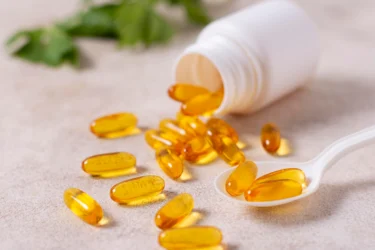
In a study, cod liver oil as a treatment option for rhinosinusitis was studied, and the results were positive. Most of the participants of the study showed improvement in the symptoms of sinusitis and a decrease in the number of hospital visits as well2. However, there is a need for more studies in this area as there is limited research showing the efficiency of cod liver oil for sinusitis. You can use fish liver oil or cod liver oil found in the markets in liquid form and use it for cooking or mixing a little bit of it in water or milk and drinking it.
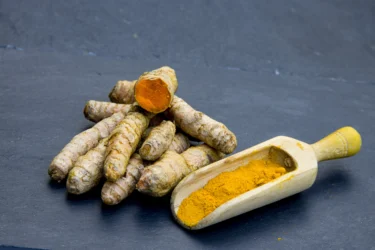
Turmeric, also called Haldi, is used widely for its medicinal properties, especially in India and China. It has various biochemical components that impart the property of alleviating inflammation and acting as an antioxidant. The uses of turmeric are broad; therefore, it finds its use in dealing with sinusitis as well. In Ayurveda, turmeric is used for managing sinusitis, cold, cough, and runny nose3. Turmeric powder can decrease the triggering of allergies, which may cause sinusitis3. So, you can make use of it by mixing a little bit of turmeric in warm milk and drinking it.

A few herbs and oils are used for relieving sinusitis. These oils are used as nasal drops, also known as nasiyam. The leaf or flower extract of thumbai (Tamil name), also known as Chhota halkusa or Gophaa in Hindi, is beneficial for managing sinusitis. You can add a few drops to your nose and inhale them. Dried ginger oil can also be used as nasal drops to deal with sinusitis5.

Steam inhalation can be helpful for sinusitis as it causes clearance of the nasal passages leading to drainage of the sinuses easily. It is a straightforward remedy, and all you need to do is boil water and inhale the steam. For added benefits, you can add a few ingredients like lemon leaves, the whole plant of thumbai (Gophaa), or tulsi leaves in the water while it’s boiling4.
Also Read: Home Remedies For Tonsillitis
Generally, self-care seems to help with sinus problems. However, if you notice that your sinusitis worsens or if the infection persists, you should seek the advice of a medical expert. Though it is rare, sinusitis can also cause infection of the eyes, brain, surrounding bones, and the layers surrounding the brain and the spinal cord (meningitis) when left untreated. When you visit a doctor, they might prescribe you medicines or ask you to get specific tests done for further evaluation1.
Also Read: Simple Home Remedies for Sneezing
Sinusitis can cause much discomfort, and gaining relief from it can feel like a reward. It is the swelling of the inner lining of the sinuses and can be caused due to allergies, cold, cough, nasal polyp, or deviated nasal septum. You can try a few home remedies like steam inhalation, pineapples, turmeric, or Manuka honey, which might be the natural solution to your sinusitis. However, even after self-care, if your symptoms do not subside, you should visit a doctor.
Also Read: Home Remedies For Asthma By Dr. Siddharth Gupta
Yes. Bacterial sinusitis is not contagious, but viral sinusitis is. So, if your friend has viral sinusitis, you can get it too. However, if proper hand hygiene and sneezing and coughing etiquette are followed, its spread can be prevented1.
No. There is no evidence of sinusitis leading to permanent loss of hearing.
Yes, sinusitis can occur due to pollen allergy. Allergies of any type can cause sinusitis1.
Although rare, untreated sinus infections can cause infection of the eyes, nearby bone, brain, and meningitis1.
No. A physician diagnoses sinus infection by examining the patient thoroughly. They might ask for additional tests like an endoscopy or computed tomography scan1.
No. Sinusitis can get better with self-care, rest, and increased fluid intake also. Home remedies like pineapples, cod liver oil, ginger, or Manuka honey can also help manage sinusitis. Your doctor may prescribe antibiotics if you have bacterial sinusitis1,2.
1. Sinusitis (sinus infection) [Internet]. Cleaveland Clinic. 2017 [cited 2022 May 25]. p. 1–3. Available from: https://my.clevelandclinic.org/health/diseases/17701-sinusitis
2. Taw MB, Nguyen CT. Complementary and Integrative Treatments Rhinosinusitis. Otolaryngol Clin North Am [Internet]. 2013;46(3):345–66. Available from: https://www.sciencedirect.com/science/article/pii/S0030666513000169?via%3Dihub
3. Prasad S, Aggarwal B. Turmeric, the Golden Spice. In: Benzie, IFF and Wachtel-Galor S, editor. Herbal Medicine: Biomolecular and Clinical Aspects: Second Edition [Internet]. 2nd ed. Boca Raton (FL): CRC Press/Taylor & Francis; 2011. p. 263–88. Available from: https://www.ncbi.nlm.nih.gov/books/NBK92752/
4. Little P, Bryan S, Kelly J, et al. Effectiveness of steam inhalation and nasal irrigation for chronic or recurrent sinus symptoms in primary care: a pragmatic randomised controlled trial. BMJ Open. 2016;6(3):e009153. PMCID: PMC5026511. Available from: https://pmc.ncbi.nlm.nih.gov/articles/PMC5026511/
5. Deve L, Poduval J. Effectiveness of over-the-counter intranasal preparations: A randomized trial. Indian J Otolaryngol Head Neck Surg. 2019 Nov;71(Suppl 3):1923–1928. doi: 10.1007/s12070-018-1331-6. PMCID: PMC6848630. Available from: https://pmc.ncbi.nlm.nih.gov/articles/PMC6848630/
Disclaimer: The information provided here is for educational/awareness purposes only and is not intended to be a substitute for medical treatment by a healthcare professional and should not be relied upon to diagnose or treat any medical condition. The reader should consult a registered medical practitioner to determine the appropriateness of the information and before consuming any medication. PharmEasy does not provide any guarantee or warranty (express or implied) regarding the accuracy, adequacy, completeness, legality, reliability or usefulness of the information; and disclaims any liability arising thereof.
Links and product recommendations in the information provided here are advertisements of third-party products available on the website. PharmEasy does not make any representation on the accuracy or suitability of such products/services. Advertisements do not influence the editorial decisions or content. The information in this blog is subject to change without notice. The authors and administrators reserve the right to modify, add, or remove content without notification. It is your responsibility to review this disclaimer regularly for any changes.
Comments

Leave your comment...
You may also like
Comments